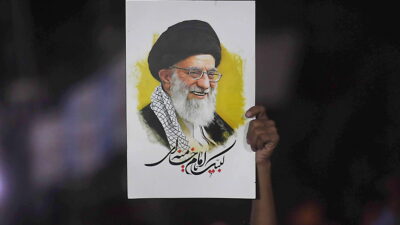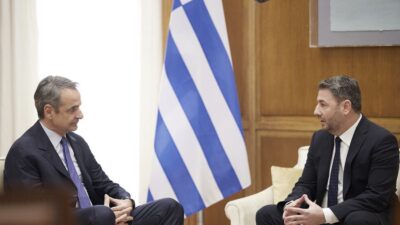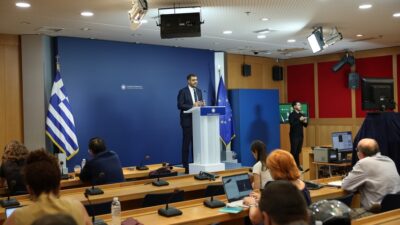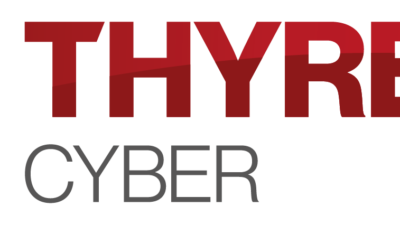Dimitris Chatzidimitriou: Berlin sacrifices Greece on the altar of Turkey
03/12/2020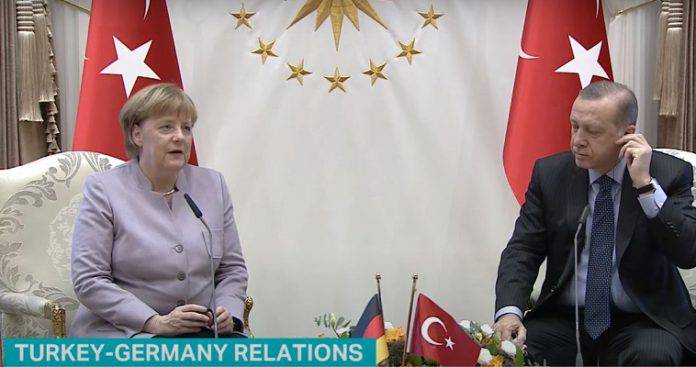
The European Council next Thursday and Friday marks the end of Germany’s six-month term in the rotating EU presidency. If this German presidency will be remembered for something it will be for the negative way in which it handled critical issues of the highest geopolitical importance, condemning the EU to the role of an awkward observer and accomplice to developments important to the vital interests of the Union in its immediate vicinity.
Even the agreement, which came about as a result of the Franco-German promotional pressure for the Multiannual Financial Framework (2021-2027), amounting to 1.1 trillion. and the Recovery Fund, from which Greece expects inflows of at least € 32 billion, risk falling victim to strong resistance from Hungary and Poland, whose governments claim to disregard European values and the rule of law, without consequences.
The German Presidency confirms the almost axiomatic statement of Theodoros Pangalos, a former Greek foreign minister well-versed in the EU policy-making process, that if you want to achieve tangible and concrete results, let the so-called “small” countries handle the issues.
Even on the major issue of Euro-Turkish relations, Berlin has failed to present a coherent European policy, or even to successfully coordinate a common response to the challenge posed for European interests by Turkish actions, from the Libyan coast to the Nagorno-Karabakh highlands. Those occupying Europa in Brussels are still using that old and outdated handbook on EU-Turkey relations, drafted in 1992 by then-UK Foreign Secretary Douglas Hurd.
The delusions of Europeans
Hurd, in the light of the collapse of the Yalta bipolar world, had urged “a practical recognition of Turkey’s strategic importance”, noting that the country’s ruling elites “want to identify and align with Western economic and social standards”. and argued that “the interests of Turkey and the West in the Middle East are identical.”
Since Hurd’s time, hundreds of MEPs and thousands of community bureaucrats have worn down their shoes and polished the seats of their pants in the cafes and restaurants of the Grand Place and the Petit Sablon, from where, staring at the beautiful stained glass windows of the gothic Notre-Dame du Sablon cathedral. pretended not to know that Turkey has changed dramatically. Turkey and its leadership are not comfortable with the role of “bridge” and “postman”- προψεσσορ between the EU, or the West as a whole, with the world of their Islamic-eastern regional environs.
The Turkey of Tayyip Erdogan and his Islamic movement fantasizes about and seeks the role of an independent and equal interlocutor between the powerful players, USA, Russia, China and at the same time mocks and laughs at the EU, for its inability to present a coherent and robust policy, able to respond to the Turkish challenge.
“Undermining the Alliance”
In recent years, Turkey has become the best and most effective pipeline for the spread and consolidation of Russian influence in the Middle East and the Mediterranean. With specific decisions and actions of the Erdogan leadership, Turkey has caused major problems in the NATO defense architecture, by including the Russian S400 in its military arsenal and at the same time hindering the implementation of the Alliance’s policy in the Baltic Republics.
Actions condemned with unusual harshness by the outgoing US Secretary of State Mike Pompeo, at the NATO Foreign Ministers’ Meeting on December 1, speaking of “the undermining of the Alliance’s cohesion by Turkey”! Turkey has also undermined the Western forces’ campaign to destroy ISIS in Syria and Iraq, while strengthening the Muslim Brotherhood in every way possible, raising internal security issues within countries with a moderate approach to religion.
And in the last year, both with the attack on the Greek border at Evros through the political instrumentalization of immigrants, and with the constant presence of research vessels off the coasts of Greece and Cyprus, it strengthens liquidity in the Eastern Mediterranean and in the name of the Turkish “Grand Idea”, the doctrine of the “Blue Homeland”, is creating the conditions for the manifestation of a wider and with indefinite consequences, conflict in the region.
And Erdogan’s words may not be “carved in stone”, but his actions and the constant creation of faits accomplis give substance to his arrogant declaration that “Turkey is the owner of the Mediterranean.” Reinforced by the fact that the EU is nothing more than a politically loose intergovernmental coalition, and taking advantage of the German presidency’s tolerance, Erdogan is “playing” with the conflicts of interest among the member states of the Union.
Berlin sees a “Positive agenda”!
Berlin, both in the first half of its presidency and in the one that’s ending, fully confirms the claim of Ahmet Davutoglu from his book “Strategic Depth” (p. 74): “In the development of EU-Turkey relations, the influence of bilateral relations between Turkey and Germany is evident “. Even just the day before yesterday, Chancellor Merkel, despite her “forced” admission of the aggressive nature of Turkish policy in the Eastern Mediterranean, called on other Europeans to show respect for Turkey, which “hosts so many millions of refugees in its territory”.
Refugees whose number she did not attribute to the Turkish invasion of Syrian territory, but to the action of “Western countries”, in an untimely and delayed criticism addressed to Paris. Reiterating herself on the eve of the previous European Council meeting on 1 October, Mrs Merkel insisted on talking about a “positive agenda” in EU-Turkey relations, a view that European Council President Charles Michel eloquently and convincingly serves, as does High Representative for Foreign Affairs and Security Policy Josep Borrell.
The word “sanctions” is never spoken from the mouths of all three, perhaps because their “religion” forbids it! But what exactly this “positive agenda” is, which incorporates all the Turkish claims, Brussels keeps as a sealed secret. When pressed, they mumble about the need to review the Customs Union, which has been in force since 1995 and is based on the Ankara Agreement of 1963 and the Additional Protocol of 1970, concealing that it will provide more billions of euros to the Turkish economy that has been left destitute, due to Erdogan’s choices.
This declaration is supplemented by the indication of the need to revise the 2016 Declaration on immigration. That is, for the channeling of more billions to the Ankara regime, in order that he does not insist on the lifting of the visa status that applies to Turkish citizens.
Turning a blind eye to the Turkish provocations
Berlin and Chancellor Merkel maintain the naive impression that by calming Turkey they can meet and respond to the threats posed by the Turkish regime within Germany, as happened in 1998 when the German citizens of Turkish descent, manipulated by Ankara, voted for the Social Democrats and the Greens en masse!
The German political class is turning a deaf ear to the French Foreign Minister’s warning that “Turkey has become an expert in the strategy of the fait accompli and the confirmation of power”. Moreover, it refuses to realize the reality of an old statesman of Turkish politics, the late Mumtaz Soisal, who, with the wisdom of a professor of Constitutional Law and the experience of a foreign minister, called on his country’s political class, “not to lead Turkey to claim international roles beyond its capabilities as a state, but also as a nation “.
But, in this way Erdogan and his followers are maintaining grandiose fantasies, which the whole of Europe will be called upon to pay at some point, even if in Berlin and various other capitals they maintain the illusion that Greece could become the “Iphigenia” they are seeking so that their own coexistence with Ankara can continue uninterrupted.

